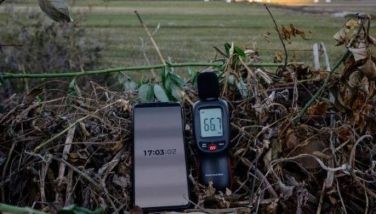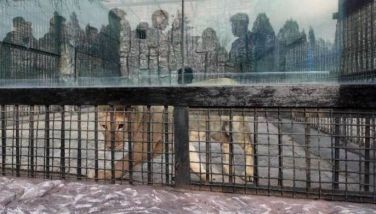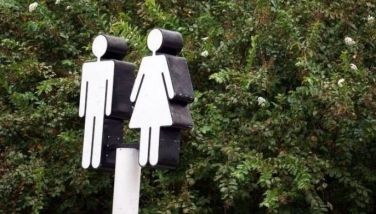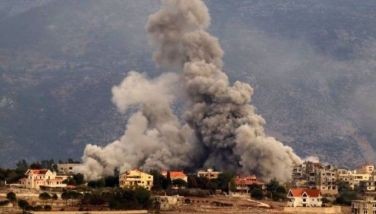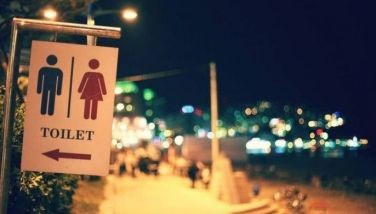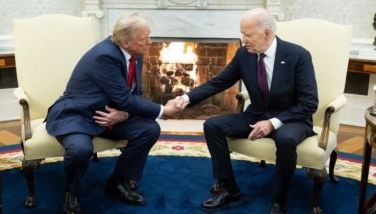Syria rebels say to remove heavy weapons from buffer zone within days
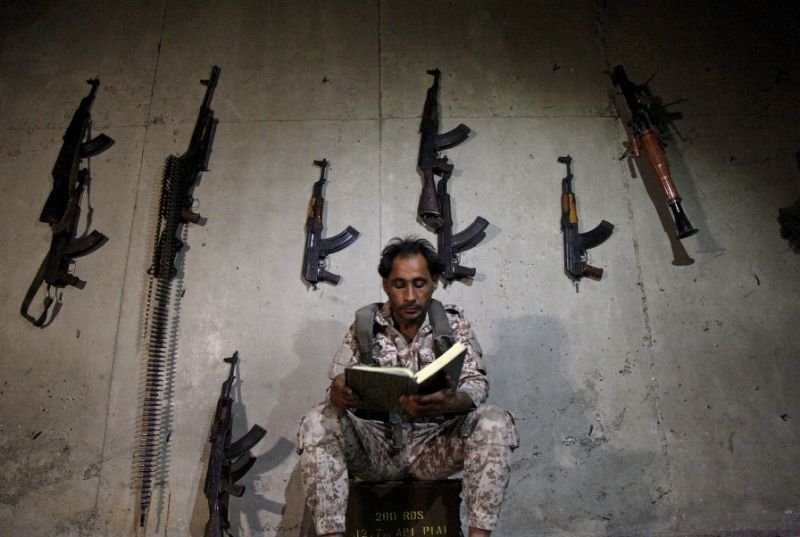
AL-EIS (Syria) - Turkish-backed rebels said yesterday they expected to finish withdrawing heavy weapons from a planned buffer zone in northwestern Syria within days under a deal to stave off a regime attack.
The National Liberation Front (NLF) announced Saturday that it has begun withdrawing heavy arms from the zone as part of an agreement between Syrian regime ally Russia and rebel backer Turkey.
The accord, reached on September 17, aims to stave off a massive regime assault on Idlib province, the last major rebel bastion in Syria, by creating a 15 to 20-kilometre (9-12 mile) buffer zone ringing the area.
Under the deal, all rebels in the demilitarised zone, which surrounds Idlib and also parts of the adjacent provinces of Aleppo and Hama, must withdraw heavy arms by Wednesday, and radical groups must leave by October 15.
"We began to withdraw our heavy weapons from the demilitarised zone to rear positions," NLF spokesman Naji Mustafa told AFP.
"The operation will last several days," he said, adding that the weapons will be held by fighters deployed in positions outside the demilitarised zone.
The NLF is the main Turkey-backed rebel alliance in the Idlib region, but jihadist heavyweight Hayat Tahrir al-Sham (HTS) holds a large part of the province and the zone.
HTS, led by former Al-Qaeda fighters, has yet to announce its stance on the buffer zone deal.
On yesterday, an AFP correspondent saw NLF fighters on the frontline inside the planned buffer zone on the Idlib region's eastern flank.
They waited in trenches armed with light weapons on a hill in the area of Al-Eis in Aleppo province, overlooking regime-held territaory several kilometres (miles) away.
- Jihadists? -
The correspondent did not see any heavy weapons in Al-Eis.
"According to the set deadline, the withdrawal of heavy weapons will end on October 10. The operation is ongoing," an NLF commander on site told AFP.
"We are reinforcing our positions and are ready to face any violation" from the regime side, he added.
In recent weeks, Turkey has deployed troops at "observation posts" it set up in rebel-held areas of Idlib and neighbouring Aleppo.
Nawar Oliver, an analyst from the Turkey-based Omran Centre for Strategic Studies, said pro-Ankara fighters giving up their heavy weapons on the front line leaves them vulnerable to a regime attack.
But "the Turkish military should have some kind of heavy artillery" with them, he said.
On Saturday, a media spokesman for Faylaq al-Sham, one of the NLF factions, confirmed the withdrawal of arms.
Seif Raad said it included pulling back missile launchers, tanks and mortars.
The Syrian Observatory for Human Rights war monitor said the withdrawal of weapons had already started a week ago and would continue for several more days.
"But the rebels only hold a third of the buffer zone," the head of the Britain-based monitor, Rami Abdel Rahman, said.
HTS and other jihadists, who control around 70 percent of the planned demilitarised area, pose the main challenge to its implementation, he said.
None have accepted the Russia-Turkey deal, yet they are expected to withdraw from the zone by October 15.
- Latest
- Trending















